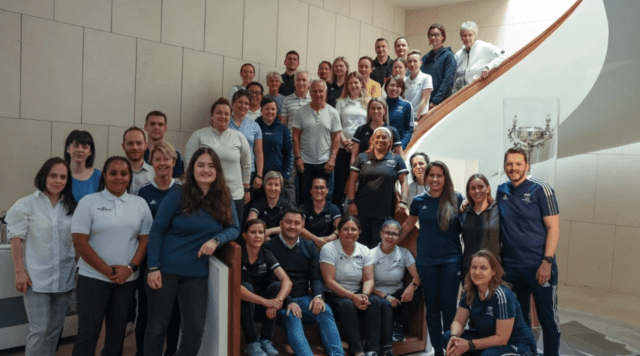Football governing body, FIFA alongside CAF has teamed up with OFC (Oceania Football Confederation) to implement a coach mentorship programme in a bid to ensure that women have a viable platform in coaching with plans in place to capitalise on increased participation demand generated by this year’s 2023 FIFA Women’s World Cup.
Read Also: Leganes Contemplates Sale of Kenneth Omeruo, Nigerian Defender Seeks New Challenge in Bigger Leagues
Traditionally, female coaches have only had one pathway, starting at a youth national team, and then working their way to the seniors, either as an assistant or head coach.
However, the increasing professionalization of the women’s game, including leagues, is now creating more access and opportunities to career paths.
On 20 July, the ninth FIFA Women’s World Cup will get underway with the largest-ever starting field of 32 teams. As the world’s best players vie to lift the trophy, once again the women’s game will be in the shop window.
Meskerem Goshime and Emma Evans were invited as observers to FIFA’s Coach Mentorship workshop in Lisbon Both confederations are focused on developing opportunities, despite numerous geographical and cultural differences in their respective regions.
Evans has worked for the Oceania Football Confederation (OFC) for the last 4 ½ years and is currently employed as the Women’s Football Manager. Her presence in Lisbon at the end of May, alongside her African Football Confederation (CAF) counterpart Meskerem Ghoshime was instigated by Belinda Wilson, Senior Technical Development Manager in FIFA Women’s Football Development team.
“This is the second edition of the programme, and till now, we have seen an under-representation of coaches from Africa and Oceania” Wilson explained. “By inviting Emma and Meskerem, we are sharing our methodology, and seeking to connect with more female coaches, to ensure they have the same opportunities to benefit from the Coach Mentorship Programme.”
Meskerem Goshime also travelled from CAF’s HQ in Cairo to be in Lisbon. The challenges she faces are not dissimilar from those that Evans encounters daily.
“We have 54 member associations with different cultures, different environments, and different stages of development of women’s football. That’s one of the biggest challenges we face” the Ethiopian-born CAF Head of Women’s Football underlined.
“We are making a lot of progress in Africa in women’s football – the current CAF African Women’s champions are coached by a woman – but we also know there is a lot we can do to improve.
“We have member associations that are very focused on coach education and have developed a lot of coaches already, while other member associations do not have that kind of capacity, and the number of women’s coaches is small.
“We are working to organise more female-based coaching courses, and this kind of coach mentorship programme can be a key educational course through which to do so.”
With debutants Zambia and Morocco joining Nigeria and South Africa at the FIFA Women’s World Cup, interest in newer territories is firmly anticipated. Banyana Banyana Head Coach Desiree Ellis – a Coach Mentorship Programme mentor – and two mentees in Lisbon – Maggie Chombo (Malawi U20 Women’s National Team coach) and Shailene Boysen – have already been earmarked to support CAF.









